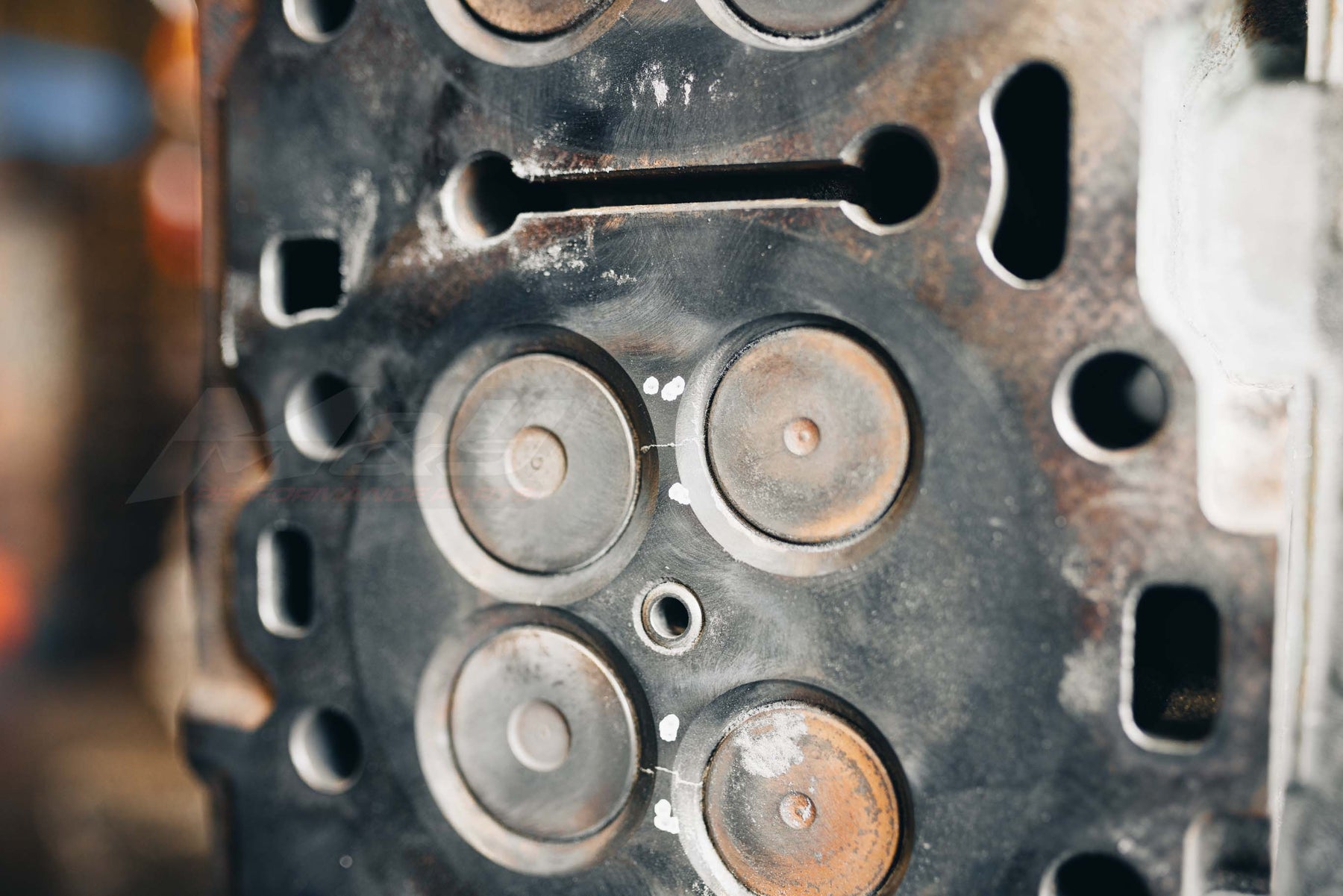713-637-8220

Why do cylinder heads crack?
Diesel cylinder heads can crack due to various factors, many of which relate to stress, heat, or mechanical issues within the engine.
M&Y has you covered whether you need a new cylinder head or a remanufactured head.
Some common reasons why a diesel cylinder head might crack include:
-
Overheating: Excessive heat is a common cause of cylinder head cracking. Diesel engines operate at high temperatures, and if the cooling system fails or is inadequate, the cylinder head can overheat, leading to warping and eventual cracking.
-
Coolant Contamination: Coolant contamination with oil or other substances can lead to corrosion or erosion of the cylinder head, weakening its structure and making it more prone to cracking.
-
High Cylinder Pressures: Diesel engines operate under high cylinder pressures, especially during combustion. Over time, this pressure can stress the cylinder head, causing fatigue and eventually leading to cracking, especially if the material is not robust enough or if there are manufacturing defects.
-
Material Defects or Poor Quality: In some cases, defects in the manufacturing process or the use of low-quality materials can make the cylinder head more susceptible to cracking under stress.
-
Improper Installation or Torque: Incorrect installation procedures or the use of incorrect torque specifications during assembly can create uneven stress distribution on the cylinder head, increasing the likelihood of cracking.
-
Age and Wear: As diesel engines age, the components, including the cylinder head, can experience wear and tear. Over time, this wear can weaken the cylinder head and make it more prone to cracking under stress.
-
Engine Knock or Detonation: Excessive engine knock or detonation can subject the cylinder head to sudden and intense pressure spikes, which can lead to cracking if the engine is not designed to handle such conditions.
-
Impact or Physical Damage: External factors such as impact or physical damage to the cylinder head can cause cracks to develop, especially in high-stress areas.
To prevent cylinder head cracking, it's essential to follow manufacturer-recommended maintenance schedules, use high-quality coolant, address overheating issues promptly, ensure proper installation and torque specifications during assembly, and monitor the engine for signs of wear and potential problems. Regular inspections and preventive maintenance can help identify issues early and prevent costly repairs down the line.
